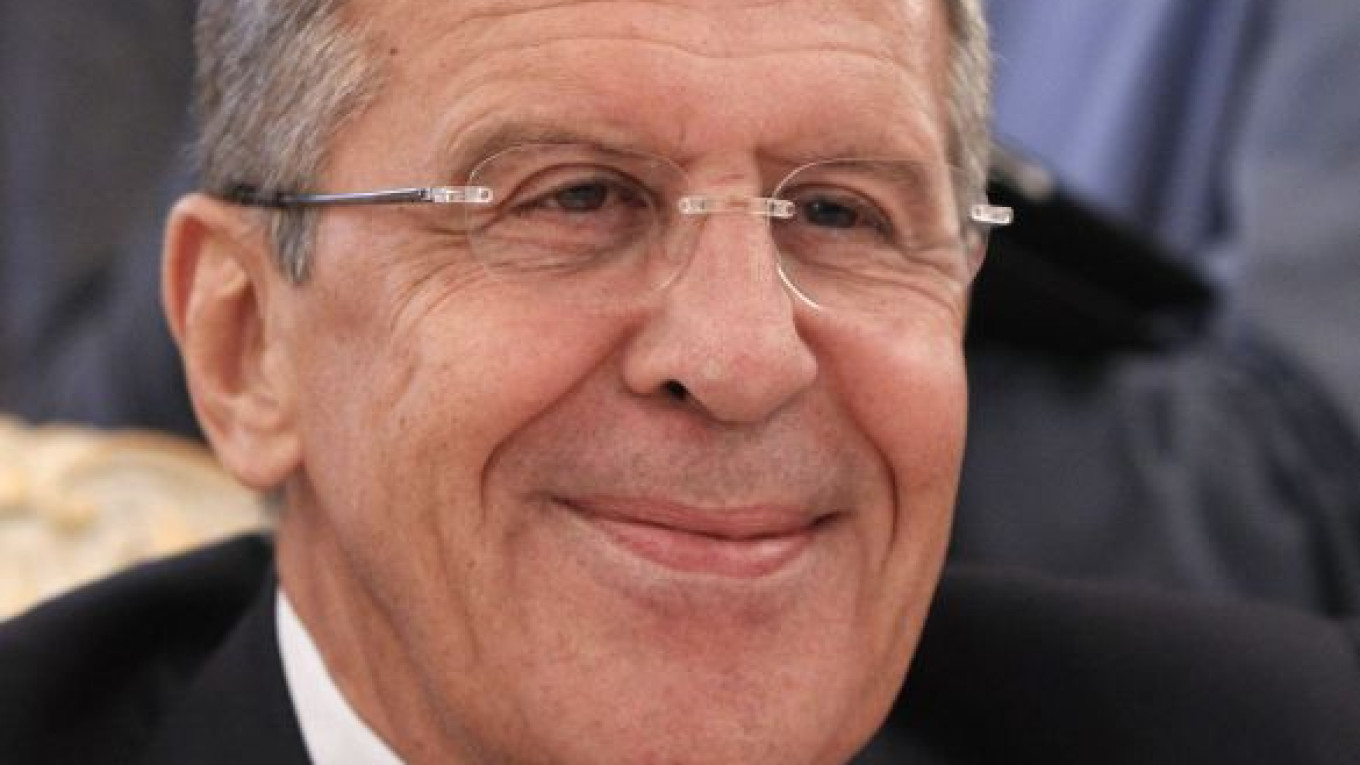Britain, France and the U.S. are set to table a resolution on Syria's chemical weapons in the UN Security Council on Tuesday evening as a Russian plan to avert a U.S.-led military strike against Syria has garnered overwhelming global support.
The announcement came after Foreign Minister Sergei Lavrov on Monday made another attempt to use diplomatic means in the Syria conflict, which has now claimed more than 100,000 lives and driven millions from their homes, by asking Syria to put all its chemical weapons under international control.
With a potential "limited" U.S. attack on Syria's strategic assets hinging on a vote in Congress, the global plowers seem to see the plan as an affordable exit strategy for the deadlock.
As a result, Syria, which has never openly recognized the presence of chemical weapons in its stockpiles, agreed to put such munitions under international control and eventually give them up by joining the Chemical Weapons Convention.
The move was widely seen as an accomplishment of Russian diplomatic effort, with President Vladimir Putin and Lavrov portrayed as successful power brokers by international media.
Russian officials have tried to mitigate this by noting that the proposal was in fact discussed by Putin and U.S. President Barack Obama during their recent informal 20-minute meeting on the sidelines of the Group of 20 summit in St. Petersburg.
But Alexei Pushkov, the chairman of the State Duma's foreign affairs committee, said the latest development was still a blow to Obama.
The Syria plan "takes the ground out from under Obama's idea of carrying out a strike," Pushkov wrote on Twitter.
Garry Kasparov, an outspoken opposition activist and prominent chess player, expressed skepticism about the move, saying "Putin and Iran as guarantors of chemical weapons transfer, what a joke. Assad can just put 'return to sender' on all his other weapons."
Obama seemed to recognize the offer as a potential breakthrough, however, though he did say it had to be handled "with a grain of salt," the Washington Post reported. ?
Skeptics have noted that the task of identifying and securing chemical weapon sites in civil-war-torn Syria, where chemical weapons have reportedly been moved around frequently, will be extremely difficult. ?
The Syrian opposition has dismissed the proposal as a "cheap trick to buy some time for the regime to kill more and more people," an opposition member in a Damascus suburb told Reuters.
Following that criticism, France said it would file a United Nations Security Council resolution to provide for the use of force if Syria fails to comply with the ultimate plan.
"It puts Russia in a situation where they can't take a step back after putting a step forward," a French diplomatic source told Reuters.
The Associated Press reported late Tuesday that Obama had agreed to discuss the proposal put forward by Russia with the UN.
At a news conference, Lavrov said Russia was working on an "effective and concrete" plan with Damascus to put its weapons under strict international control, though no specific details have yet been worked out. No Russian reaction to the potential security council resolution has been reported.
Dmitry Trenin, director of the Moscow Carnegie Center think tank, said "putting Syria's chemical weapons under international control, if it is achieved, would be the best real result of U.S.-Russian collaboration."
He said the idea had actually been proposed by Richard "Dick" Lugar, a former U.S. senator who was one of the sponsors of the Nunn-Lugar program to dismantle weapons of mass destruction in post-Soviet states.
Alexander Konovalov, president of the Institute for Strategic Assessments, said U.S.-Russia relations could benefit greatly from the plan if it turns out to be successful.
"We have many challenges that can only be resolved together," he said.
Contact the author at i.nechepurenko@imedia.ru
A Message from The Moscow Times:
Dear readers,
We are facing unprecedented challenges. Russia's Prosecutor General's Office has designated The Moscow Times as an "undesirable" organization, criminalizing our work and putting our staff at risk of prosecution. This follows our earlier unjust labeling as a "foreign agent."
These actions are direct attempts to silence independent journalism in Russia. The authorities claim our work "discredits the decisions of the Russian leadership." We see things differently: we strive to provide accurate, unbiased reporting on Russia.
We, the journalists of The Moscow Times, refuse to be silenced. But to continue our work, we need your help.
Your support, no matter how small, makes a world of difference. If you can, please support us monthly starting from just $2. It's quick to set up, and every contribution makes a significant impact.
By supporting The Moscow Times, you're defending open, independent journalism in the face of repression. Thank you for standing with us.
Remind me later.


